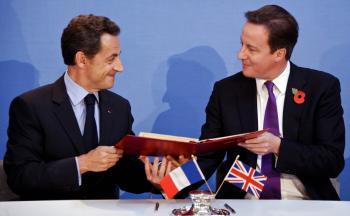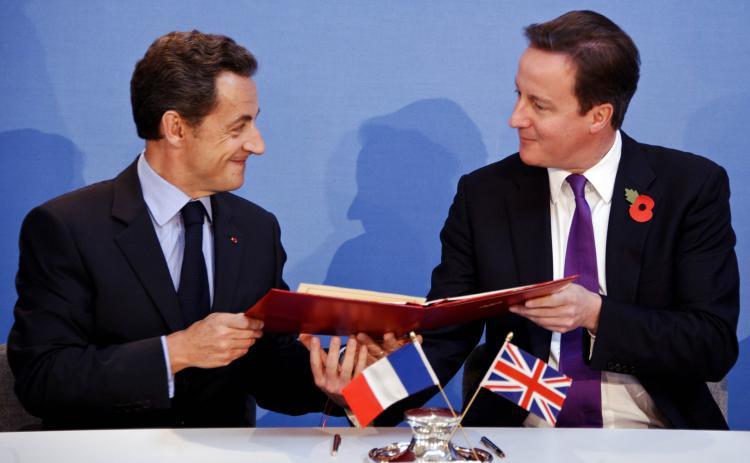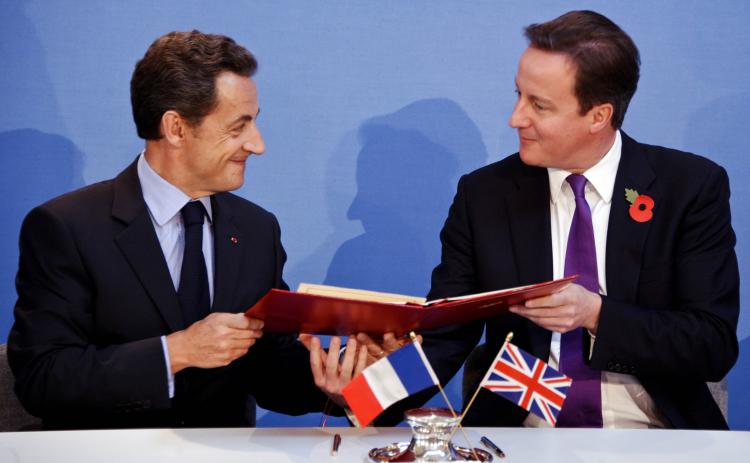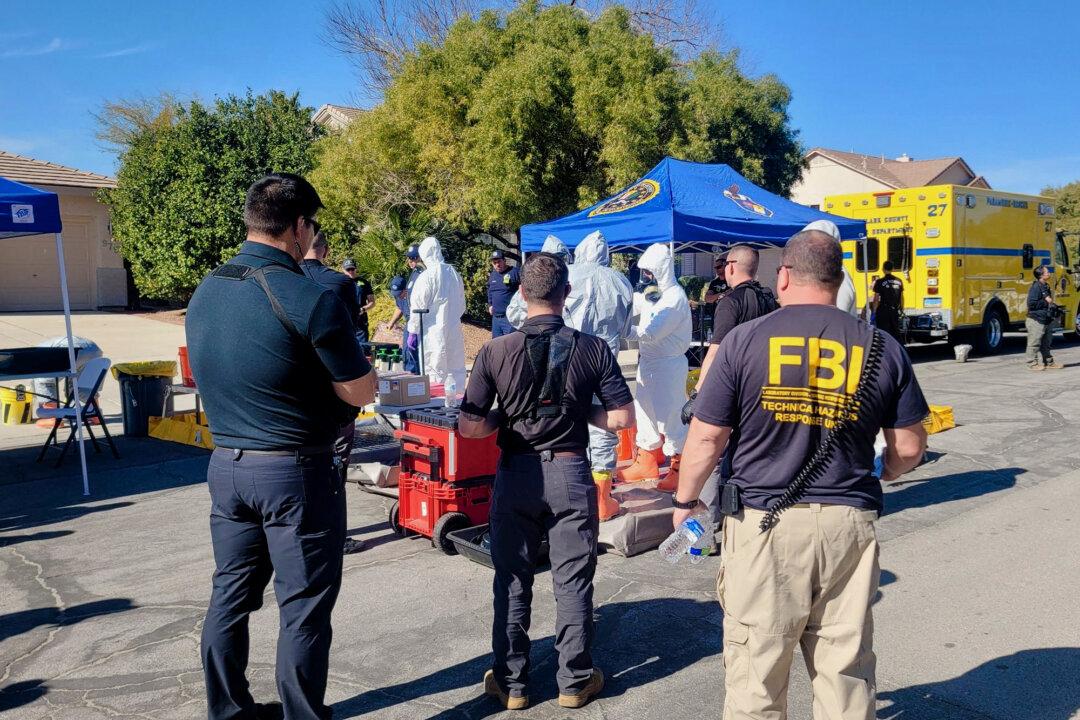France and UK Head Into Military Alliance
Prime Minister David Cameron said the U.K. and France have opened a “new chapter” in security cooperation.

French President Nicolas Sarkozy (L) and Prime Minister David Cameron exchange copies after signing a treaty during the Anglo-French summit at Lancaster House on Nov. 2 in London, England. Lionel Bonaventure/Getty Images
|Updated:






